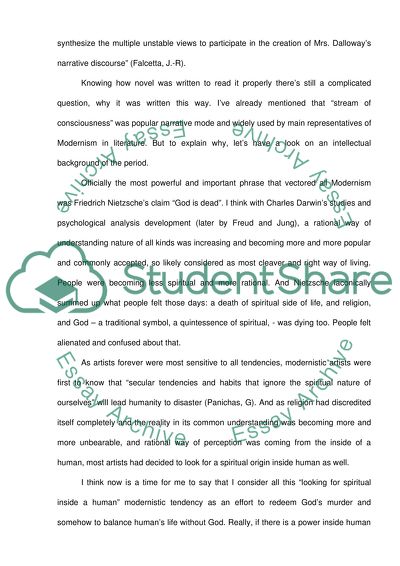Cite this document
(“An analysis of the novel Mrs. Dalloway, use critical thinking Essay”, n.d.)
Retrieved from https://studentshare.org/literature/1657974-an-analysis-of-the-novel-mrs-dalloway-use-critical-thinking
Retrieved from https://studentshare.org/literature/1657974-an-analysis-of-the-novel-mrs-dalloway-use-critical-thinking
(An Analysis of the Novel Mrs. Dalloway, Use Critical Thinking Essay)
https://studentshare.org/literature/1657974-an-analysis-of-the-novel-mrs-dalloway-use-critical-thinking.
https://studentshare.org/literature/1657974-an-analysis-of-the-novel-mrs-dalloway-use-critical-thinking.
“An Analysis of the Novel Mrs. Dalloway, Use Critical Thinking Essay”, n.d. https://studentshare.org/literature/1657974-an-analysis-of-the-novel-mrs-dalloway-use-critical-thinking.


